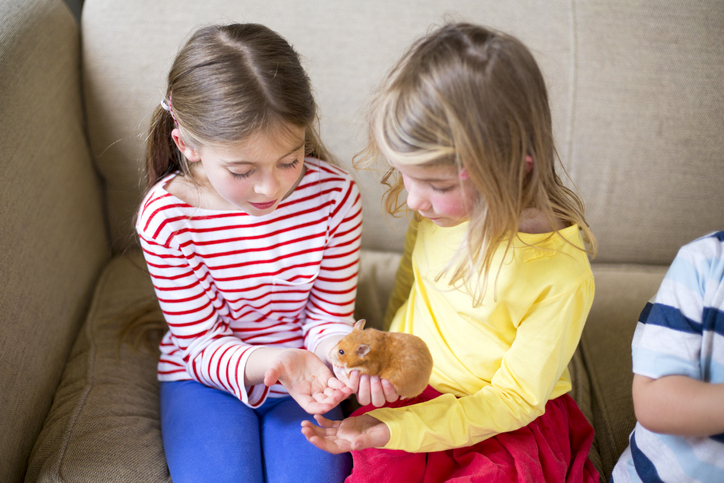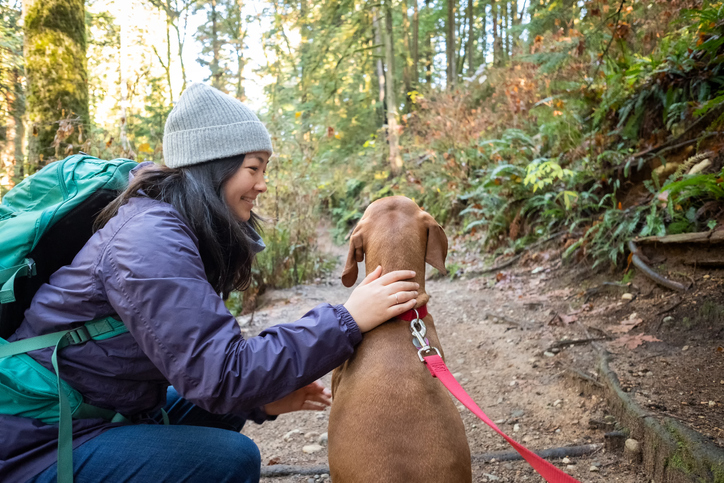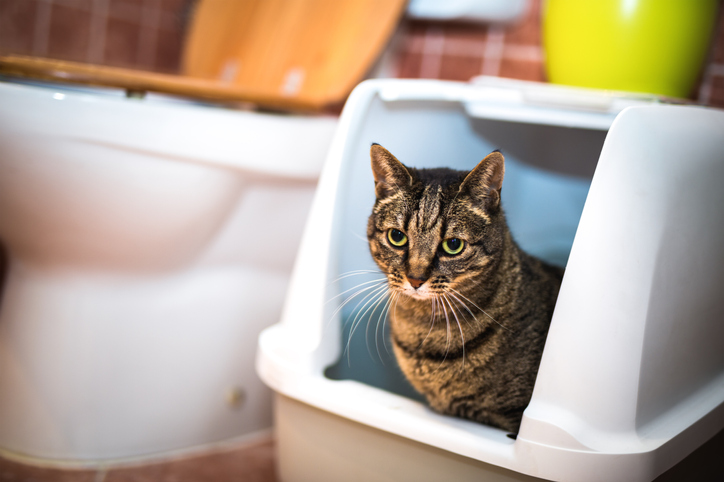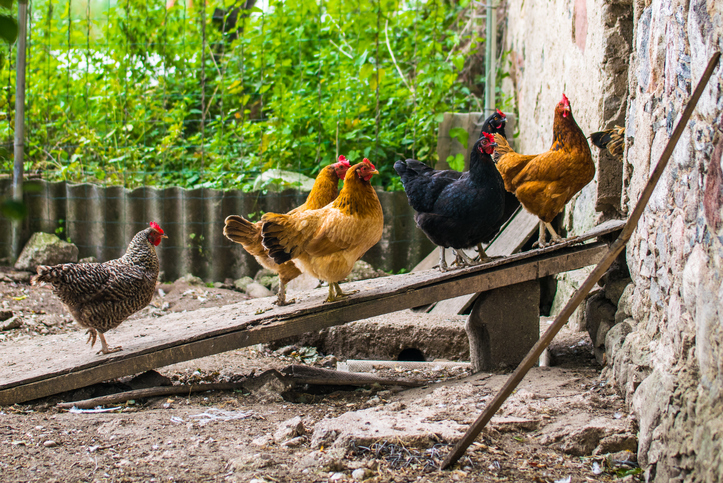As any lover of furry friends knows, animals can benefit our health in many ways, from boosting our mental health to providing life-saving services to encouraging us to get outside for more walks. We would never discourage you from surrounding yourself with the unconditional love of a cat, dog or other pet. However, just as one person can spread germs to another, there are some viruses and bacteria you can pick up from your pets, and your lizard (or rat) might not have the runny nose to show it.
So, before you:
- Get a face-bath from your cat or dog
- Belly-rub a pig at a petting zoo
- Let your salamander sleep with you
Here are a few of the germs you should know about and how to keep them at bay—so you and your family can enjoy some cuddles and companionship without worrying.
-
Salmonella

Some bacteria and other germs are naturally present in animals, and don’t make them sick. But if those same germs get into our eyes, mouths or noses…well, it’s a different story. Small pets like birds, reptiles, gerbils, hamsters, hedgehogs and other rodents carry the Salmonella bacteria that causes salmonellosis.
Kids under the age of 5 need to be closely supervised to make sure they don’t put their hands in their mouths (or noses!) or kiss the animals. That’s how Salmonella, Campylobacter, Giardiasis (beaver fever) and other diarrhea-producing illnesses can start. I know, lizards are cute, but it’s best to resist that cheek-to-cheek selfie.
Read more about Salmonella on the Government of Canada website.
-
Echinococcus multilocularis, a.k.a. the fox tapeworm.

You might not have heard about this parasite because it was only in 2018 that its presence was discovered in Ontario. It lives out its lifecycle in wild animals (rodents and canids like coyotes) but can be spread to dogs if they:
- Eat the feces of an infected animal
- Eat a rodent that’s infected (dead or alive)
Dogs can also carry the eggs on their fur, making it more likely for an unsuspecting belly-rubber to accidentally ingest the eggs.
Worse still, if you happen to catch the fox tapeworm from your dog, you won’t know for another 5 to 15 years, when your liver starts accumulating significant damage.
Even if your dog isn’t the type to eat poop, this tapeworm is a good reminder that new diseases can pop up or become endemic to our area at any time, and that washing your hands before eating or touching your face is a best practice at all times.
Learn more about the fox tapeworm from Worms & Germs or this CBC article.
-
Toxoplasmosis

If you’ve ever been in charge of a cat’s litter box, you may have already been exposed to one of the world’s most common parasites—the one that causes Toxoplasmosis. The good news is, if you’re healthy and not pregnant, you likely won’t even notice because most folks never develop symptoms or require treatment. But if you are pregnant, getting toxoplasmosis could lead to serious problems with baby’s brain and vision.
If you’re pregnant, avoiding contact with cat stool (poop), litter, and garden soil/sand (that could be contaminated by a neighbourhood kitty in need of a rest stop) is a good preventative measure. Learn more via HealthLink BC: Toxoplasmosis During Pregnancy.
-
Salmonellosis or campylobacteriosis from backyard chickens

Whether backyard chickens count as pets or not depends on who you ask. Either way, they’re becoming more popular in some local municipalities (for example, Guelph allows them but Wellington North does not), so they’re worth including on our list.
The good news is that the risk of catching something from your hens is pretty low, through there is a chance of getting diarrhea-inducing salmonellosis or campylobacteriosis. Simple precautions can reduce the risk even further and ensure your family can continue to enjoy its backyard-to-table food web:
- Keep chickens out of your house
- Provide them with appropriate housing and remove their poop regularly
- Wear dedicated clothing when working with the chickens
- Ensure you and any kids/visitors avoid kissing and snuggling the chickens
- Store poultry feed in a rodent-proof container
- Wash your hands after touching chickens
-
Rabies

Rabies is a disease of mammals—foxes, skunks, raccoons and bats, most commonly. But it can also affect pets of the large and furry variety, especially cats and dogs that go outside and could be in contact with wild animals. Pets can be exposed to the rabies virus through a bite or scratch from a wild animal. Unfortunately, if your pet isn’t vaccinated and gets the virus, it will die. And, in the meantime, the pet could be spreading the virus to other people who love it.
Let’s all agree not to go down that road by vaccinating all cats and dogs against rabies (it’s also the law for all cats, dogs, and ferrets that are over 3 months old). If your pet does get into a tussle or encounter with wildlife (like a bat, skunk, raccoon or fox), call your veterinarian as a precaution.
Find out more about what to do if your pet is bitten or what happens if a dog bites you.
How can you reduce the risk of catching something from your pet?
Since many zoonotic diseases (those that spread from animals to people) are spread by accidentally ingesting germs that come from our pets, simple precautions like handwashing go a long way towards prevention.
To reduce the chance of catching something from your pet:
- Take your pet to the vet and make sure they’re up-to-date on their vaccinations
- Clean cages, tanks and bedding regularly
- Avoid touching your pet with your lips or face
- Wash hands after handling your pet, and before you eat
- Supervise kids to make sure they follow the rules too
If you or a family member develop symptoms like diarrhea, fever, vomiting or stomach cramps after being in touch with animals, contact your healthcare provider for advice.
So, continue to love on your pets. Blow them kisses from afar. Rub their bellies. Buy them toys. Just remember to wash your hands and try not to eat their poop.
